
How Steve Bell's visual dissent targets the entire establishment
10.12.22
Philosophy Football's Mark Perryman details the politics of Penguinism
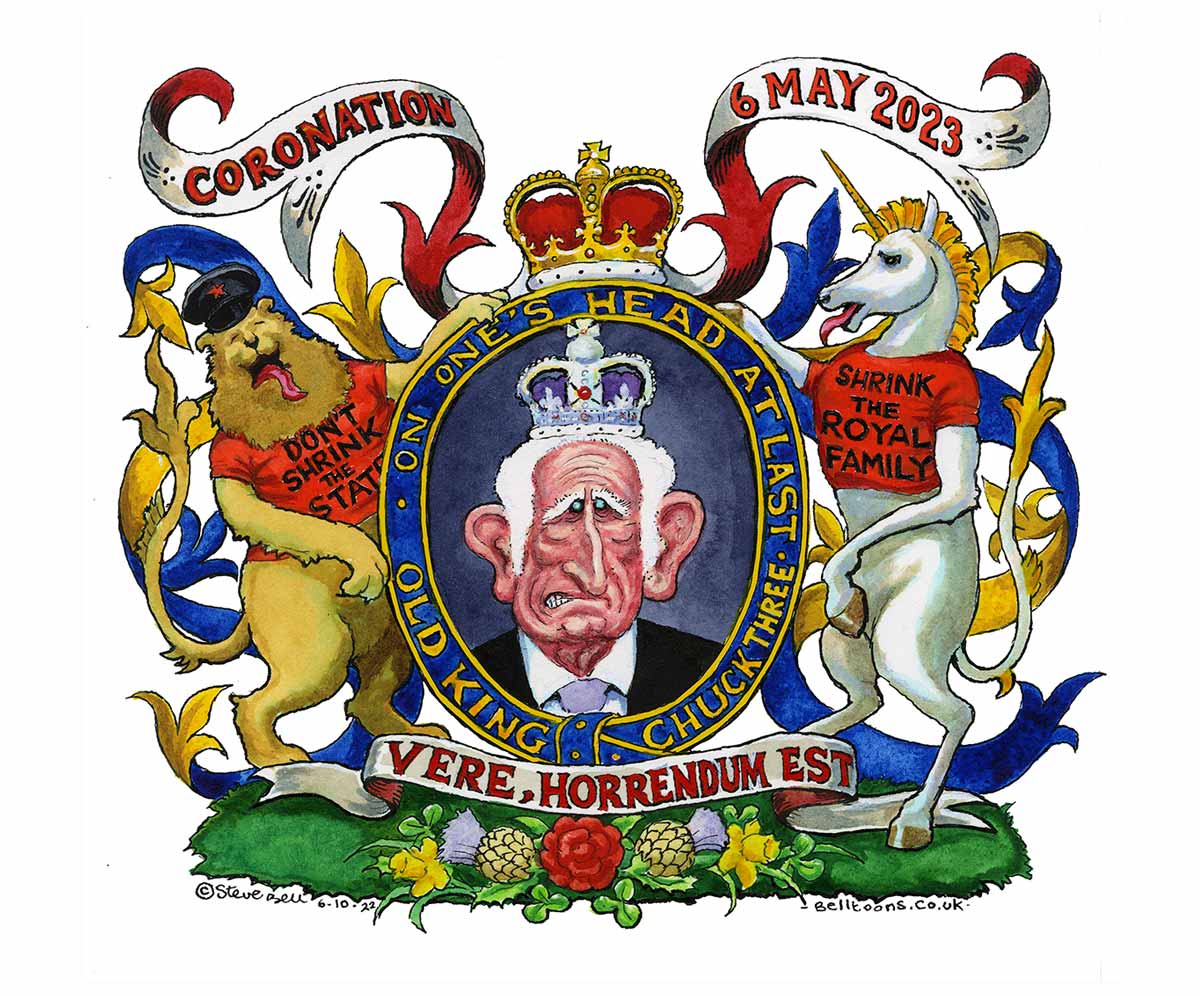
Politics can be an ugly business. There is a nasty habit of refusing to listen to those we disagree with, a failure to recognise that through difference we can learn from each other. Such inbuilt attitudes are common across left, right, in-between and green. Nor are sections of social movements immune either. So where lies the political cartoonist's right to offend?
Steve Bell is without much doubt the pre-eminent political cartoonist of his generation, or in other words from Thatcher to Sunak. He mercilessly caricatures the lot of them, not a physical, or political feature is spared. This is The Political Establishment, they deserve everything they get, however Steve's work is never hateful, sharply critical certainly, yet almost warmly appreciative of the make-believe characters he crafts out of their reality.
This year marked the fortieth anniversary of the 1982 Falklands War. With Maggie! Maggie! Maggie! Out Out! Out! plumbing the depths of unpopularity the Argentine invasion of these faraway and half-forgotten islands with considerably more sheep than human occupants provided Thatcher the opportunity to wrap herself in what Stuart Hall described as :
" A rampant and virulent patriotism. Once unleashed, it is an apparently unstoppable, populist mobiliser - in part, because it feeds off the disappointed hopes of the present and the deep and unrequited traces of the past, imperial splendour penetrated into the bone and marrow of the national culture."
Steve draws in outright opposition to such ideas but with a humour almost entirely lacking in conventional so-called activism. His militancy best represented by his penguins, reducing Thatcher's militarism to the sheer stupidity of the idea that the Empire was back, the 'Great' put back into Great Britain and you can stuff that up yer Argies.
The necessity for such dissent couldn't have been more obvious at the time with Labour led by Michael Foot, once a key figure in the Campaign for Nuclear Disarmament, now in hot pursuit of the Tories' march to war. Stuart Hall, again:
" More scandalous than the sight of Mrs Thatcher's best hopes going out with the navy has been the demeaning spectacle of the Labour front-bench leadership rowing its dinghy as rapidly as it can in hot pursuit. Only of course - here the voice of moderation - 'Not so far! Slow down! Not so fast!' "
Penguins, John Major with his underpants on the outside, Tony Blair as the manic moderniser, a condom-headed David Cameron accompanied by an S&M clad George Osborne, Bumface Boris Johnson and most recently Sir Cardboard Starmer. This is the political, establishment but not as we're used to knowing it.
And then there's the British monarchy. Sainted, any critique beyond the pale. What better target for Steve's visual dissent? But why should the Monarchist majority have all the fun of the royal family merch and tat? Philosophy Football first worked with Steve on the Queen's Diamond Jubilee, his Damian Hirst-inspired 'Diamond Liz' mug perfect for raising a disloyal toast. Since then with Strve's help we've 'celebrated' a Royal Wedding, Royal birth, another Royal Jubilee, and of course next year for many the first Royal Coronation of our lifetime. With each and every subvertised Royal Crest he creates for these occasions as always with Steve the opposition is sharply obvious, the human warmth of his caricature conjuring humour out of dissent.When the Guardian made the ludicrous decision to axe Steve's If... cartoon strip he marked his final week with those much-loved Penguins. Anti-establishment to the last, a quiet rebellion in the face of all that's wrong in politics, an exposure of the limits of a common-sense discourse that is anything but commonsensical, by Penguins! Nothing could represent Steve Bell's artistic genius of visual dissent better, and whatever 2023 holds, King Chuck the Third with the crown on his head, Sir Cardboard Starmer knocking on the door of Number Ten, we'll need plenty more of that. Penguins ahoy!

Steve Bell's King Charles III Coronation Mug is available from Philosophy Football here
Mark Perryman is the co-founder of Philosophy Football
In defence of the Guardian-reading Tofu-eating wokerati
03.12.22
Philosophy Football's Mark Perryman speaks up for a much-maligned minority

OK I can think of a fair few minorities in more urgent need to mount the barricades for. And yes, it's easy to mock, or if the intellectual fancy takes us critique too. But when Suella Braverman, of the planeful of refugees and asylum seekers jetting off towards deportation to Rwanda dream, uttered these words her politically malicious intent was obvious to all, or at least it should have been.
Guardian readers, lower-case liberals and for the most part middle class too. At a recent Labour Party event in Lewes where I live which Guardian columnist Jonathan Freedland spoke at the audience was asked how many read the paper. Almost the entire room of 200 hands went up in the air. We all had a good laugh at our own expense, but then this is a town which boasts not a single Tory councillor and hasn't had one in years. The Labour Party, currently enjoying a surge in membership, has a longstanding problem of a narrowing social base of those who join. This certainly needs addressing, but if it is done as some would seem to advocate from the workerist left as an act of class conscious self-harm, another Guardian reader, no thanks, what precisely does this achieve?
Suella knew exactly what she was doing when she conjured up her trilogy of targets. This was a nakedly right-wing populism to seek to pin liberal values, environmentalism, anti-racism on a middle-class sock puppet and give it a good bashing. But all three have an actuality of support which is cross-class, politically plural and of a magnitude which is her worst nightmare. Hence her, and others, ambition to stereotype and in the process marginalise the opposition.
Britain has changed hugely from the days of Enoch Powell, Margaret Thatcher and other purveyors of this kind of right-wing populism. Nigel Farage did his worst to resurrect it via UKIP and Brexit. But the true success of this campaign belongs to the brilliant manoeuvre of Dominic Cummings to pitch the referendum vote as 'Take Back Control ' v s 'Remain, keep everything as it is'. In the process exposing a Guardian-reading liberal shortcoming, an inability to engage with the reasons why others might disagree with our particular world view in order to construct a populist progressive bloc. that includes those who retain their misgivings. Remain? Leave it as it is, an institution with next to no popular support, let alone popular identification with, across British society, was a campaign doomed to failure from the start. A self-referential liberalism at its worst.
But there is another way. I religiously read the Guardian from the sports pages backwards. Every day whatever is on the front pages I turn to the match reports, sporting commentary, news and opinion first. Here I read, Jonathan Liew in particular, writers who by exploring the indivisibility of sport from the political help to construct in my mind and political practice the basis of a radical-popular politics. Carrying out Stuart Hall's maxim so vital for any such project “It is through culture that processes of social change make themselves most dramatically visible." The most Europeanised institution in English society? A Premier League football club, increasingly Championship and lower divisions too. Manager and coaching staff, players, sponsors and advertisers, fan-base, 'getting into Europe' the ultimate competitive ambition for clubs and fans, the Euros second only to the World Cup the ambition for England, Scotland, Wales, Northern Ireland. Tap into this and Leave would have lost, the failure to do so and posing the alternative as the uncritical, status quo, wrapped in an EU flag hitherto only seen in public worn by the European Ryder Cup team - yes, another popular dimension missed - Remain doomed to defeat.
Race, national identity and Englishness, the break-up of the Union, globalisation, petro-dollar funded soft power, in Stuart Hall's words through sport made 'dramatically visible'. Debating the complexities of transgender women's rights vs all women's rights minus the overheated polarisation which only serves to obscure and obstruct. Or to get a tad philosophical as the Qatar World Cup fills the Guardian sports pages, page after page, be I ever so humble a rather good article situating the tournament both historically and betwixt universalism vs cultural relativism. All of this informed by what should be the foundation of a radical politics, the cultural and social indivisible from the political and economic. The Guardian as a newspaper does this better than most, getting up the nose of both reactionaries and class reductionists.
A bit woke? Yes can be, the self-referential does no cause any political favours. But at its best, connects the popular to the political to help us understand, and act. Give me that over either Suella's hateful stereotyping or an overdose of liberal guilt every time. So no Suella I'll stick with the Guardian-reading wokerati if you don't mind. But there is one item on her list I'm in agreement with. Vegetarian yes, but I really can't stand tofu.
Further Reading
Anthony Barnett The Lure of Greatness: England's Brexit and America's Trump
Stuart Hall Selected Political Writings

The Philosophy Football Guardian-reading Tofu-eating Wokerati T-shirt range is available from here
Mark Perryman is the co-founder of Philosophy Football
Love Football not FIFA
19.11.22
Mark Perrymanof Philosophy Football argues to understand Qatar 2022 start with how the World Cup is always political

Today, Sunday, the Qatar World Cup kick off. As part of the week preceding 'Stadiums of Shame' screamed the Guardian back page sports headline on Tuesday, while inside two pages of facts and figures featuring the plight of migrant workers, former German international Philipp Lahm saying he won't be going because the World Cup doesn't belong in Qatar, plus the launch of a new online resource beyond the football.
All of this is being framed by the editorial self-justification 'This is a World Cup like no other.' Meanwhile yesterday, as with every Saturday preceding a World Cup for as long as I can remember there wwas free with the Guardian their 56-page guide to the tournament full of 'inimitable team--by-team guides' followed on today's with the Observer a free World Cup 'brilliant wallchart'. Confused? We might well be.
Mmm, or as the terrace chant goes ' If you know your history...' because the idea Qatar is 'like no other' is the product of a deep-seated ahistoricism. Qatar is simply the latest World Cup to be used as a political platform. In this key regard we cut through both the cultural relativism and the liberal platitudes. To recognise there is nothing remotely 'like no other' about this World Cup, rather it suits the well-worn norm, would be a start.
To begin at the beginning, 1930, the first World Cup, hosted by Uruguay, the tournament invented by a Frenchman, Jules Rimet, organised by FIFA, founded by another Frenchman, Robert Guérin. The FA, never knowingly described as the English FA, because after all we invented the game, promptly announce they would be boycotting it. Nothing to do with human rights or the like in Uruguay, rather the very idea these Johnny Foreigners might think they can run our game. The next one England boycotted as well 1934, 1938 too before finally entering the 1950 World Cup. A squad of England legends, including Billy Wright, Stanley Matthews and Tom Finney, promptly knocked out at the group stage. England having been beaten by the USA, at the time a team of amateurs. No, football didn't come back home (sic) back then either, and we've had to live with the ideological legacy ever since.
The 1934 World Cup, host Mussolini's Italy, his Blackshirts explicitly used the Italian national team to build support for fascism, winning their home tournament, and France 1938 too, the first team to win an away World Cup. Or Prime Minister Harold Wilson turning England 's 1966 win into a reason to vote Labour ' Have you noticed we only win the Word Cup under a Labour government'. An old Labour pledge that has stood the test of time, in this case more's the pity. World Cup 1970, Israel qualify via the Asian Football Federation (AFC), which its a member of. One World Cup later Israel is forced to leave the AFC because most member countries refuse to play a nation that mistreats Palestine in the way Israel does. UEFA on the other hand welcomes Israel with open arms, the only non-European country it has allowed to join. World Cup 1974 the USSR team are expelled from the tournament for refusing to play Chile following Pinochet's coup, Chile take part in their place. Or the last World Cup, 2018, Putin's World Cup, just four years after his annexation, aka invasion, of Crimea, this time round 2022, all Russian participation banned. Qatar, a World Cup 'like no other', no, in a myriad of ways like all the others, framed by politics, most of it bad.
For this World Cup the England team flew out to Qatar in a plane renamed for the trip 'Rainbow.' A powerful and very public statement of LGBT support in the face of widespread laws in Qatar outlawing both LGBT relationships and a variety of women's rights we take for granted. Support amplified by widespread coverage of the issue in the sports media too. Good. Though on that plane there wasn't a single out gay male player, nor do any of the squad play alongside any out gay men, none managed by an out gay man. To be gay and out in England isn't illegal, yet to play professional football it might as well be. Perhaps a degree of self-reflection wouldn't go amiss.
Qatar using, abusing, the World Cup for political ends, it was ever thus. This is the downside of football as the one truly global sport. Yes Rugby (both versions) and cricket (all versions) have their World Cups but they're not truly global are they? These are sports fundamentally framed by the British empire with the odd other international hangers-on who can score upsets but never get remotely close to the latter stages of the tournament. The winners of football's World Cup are a likewise select few from Europe and South America, but in contrast to the cricket and rugby World Cups semi-finalists, quarter-finalists come from every continent, every corner of the world. This is the upside, including Qatar, a World Cup as a festival of popular internationalism.
I'm lucky enough to have travelled as an England fan to four World Cups including Asia's first, Japan and Korea 2002, Africa's first, South Africa 2010. Never mind, well actually I do mind, a lot, England didn't come close to lifting the trophy, the experience was utterly unforgettable. Yes, it's a holiday of privilege but being there is also hopelessly mixed up with, despite the unfamiliar and difference, what we shared as visitors with our hosts, the love of football, not as tourists, but as fans, united. That's what Qatar should be about. The first Middle Eastern World Cup, good. The first in a majority Muslim country, good. The first that recognises not the entire world follows the European (not even all of Europe) league season calendar, August-May, good. But of course, we all know it won't, and that is a huge loss, barely recognised.
There are certainly plenty of good reasons to give this World Cup a miss, the mistreatment and appalling deaths of migrant workers who bult the magnificent stadiums teams are so much looking forward to playing in near the top. The corrupt way in which the bid was secured too. Though England were part of that round of bidding too and played an international in Trinidad and Tobago with the sole intention of getting that country's vote. England won, lost the vote, moral high ground abandoned.
To boycott or not to boycott? In the 1970s protests and disruption stopped overseas tours from Apartheid South Africa and led directly to South Africa being banned from international football sport by FIFA, as well as the Olympics. Result. But let's be brutally honest for Qatar it's a non-question. Despite all the coverage, all the exposure of a media determined to expose Qatar as an unsuitable host and give the tournament every bit of coverage they will provide absolutely per usual, there is no mass, popular movement. Because the contradiction is shared by all those looking forward to the games but not having much time, across a wide variety of reasons, not all good, for the country where they're being played, and next to no time for the organisation that chose that country as the host. Best chance of a boycott? England exit in ignominy at the Group stage and the boycott will be unstoppable. Prospects for solidarity? Wales march on triumphantly to the knock-out stages and there's a tidal wave of Welsh solidarity, with their team. Because when it comes down to it the for next four weeks any moral gymnastics can be reduced to four words. Love football not FIFA.
Further Reading Mark Perryman Ingerland : Travels with a Football Nation
Mark Perryman is the co-founder of Philosophy Football
 The Philosophy Football World Cup 2022 Love Football not FIFA badge and T-shirt range is available from here
The Philosophy Football World Cup 2022 Love Football not FIFA badge and T-shirt range is available from here
Remembrance yes, but what are we remembering?
11.11.22
Philosophy Football's Mark Perryman untangles the poppy from the political undergrowth

Premier League footballers this weekend, as they have for several years now, will be sporting a poppy embroidered into their kits. Up and down the divisions, if they haven't done so already, clubs will precede kick off with a scrupulously well-observed minute's silence.
But what precisely is being remembered here? Unlike the Second World War, the First World War's causes and effects have largely been lost in the mists of history. Even the most diligent regime of revision by those preparing for their GCSE History might struggle to come up with a reasonable explanation. The Blackadder version of class division in the trenches coupled with an awkward mix of the extremes of superhuman courage and senseless sacrifice fits awkwardly with official versions that cannot bear to admit the latter half of the origins of the poppy myth.
When Philosophy Football commissioned the renowned illustrator Dan Murrell to come up with an image to combine these varied contradictions Dan didn't disappoint. The silhouette of those countless hundreds of thousands who in death became a single unknown soldier, place and date unspecified. The football in his hands to symbolise what he'd rather be doing away from the front. The poppy represents not today's far off commemorations but the bloody carnage to come in a matter of days, if nor hours. And of course, famously on Christmas Day 1914 soldiers from both sides did just that, the 'football truce' a brief but hugely symbolic episode of rank-and-file resistance to the juggernaut of war which left 22 million dead. He'd rather be playing football but all his mates who would play in his team will soon be dead at Loos, Vimy Ridge, the Somme, Passchendaele, and for what?
The Christmas Truce game took place on the Western Front, Pont Rouge. Christmas Eve 1914 German troops had decorated their frontline with Christmas trees and candles. They sang Stille Nacht a tune and carol most of the British troops knew too, as Silent Night. Astonished, they applauded and then joined in with songs of their own. Christmas Day, dawned, the guns are silent. A German NCO advances across No Man's Land carrying a Christmas Tree towards the British lines. A British soldier goes to meet him, soon others join him, gifts are exchanged. A football is produced. Caps and helmets for goals. The match ends 3-2 to the Germans.
By lunchtime on Christmas Day the guns had fallen silent on two-thirds of the British sector. More games were played before hostilities recommenced. The fact that football was the means of connection amidst such conflict is the perfect illustration of its centrality to working-class life in Britain, and to a lesser extent mainland Europe, by the early 20th century.
Two and a half years later a very different expression of football's centrality to early twentieth century class culture was at the Battle of the Somme, 1 July 1916, when Captain Nevill of the East Surreys offered a prize for the first platoon to kick a football up to the enemy trenches.
"On through the hail of slaughter,
Where gallant comrades fall,
Where blood is poured like water,
They drive the trickling ball.
The fear of death before them,
Is but an empty name;
True to the land that bore them,
The Surreys played the game."
This was the way at the time a poet writing under the pseudonym 'Touchstone' described for the Daily Mail the 420,000 losses the British Army suffered. A game? Even the most committed militarist might struggle to comprehend this particular emotional response. But such was the iron will at the time of those who backed the war, no questions asked, no answers given.
All of this sits rather awkwardly with the twenty-first century status of the poppy. A remembrance that provides little space for why such a war was fought, to what ends. The words of the war poets, most famously Wilfred Owen, almost entirely absent from institutionalised memorialising.
" Sit on the bed. I'm blind and three parts shell.
Be careful; I can't shake hands now; never shall.
Both arms have mutinied against me, - brutes.
My fingers fidget like ten idle brats."
Written while Owen served on the frontline with The Manchester Regiment, published posthumously following him being killed in action November 1918.
Of course, remembrance is tinged with the mournful. The minute’s silence an incredibly powerful statement of this, whether as a crowd of thousands in silent unison before a football match, or the quietness of solitary observation of the eleventh hour, on the eleventh day, of the eleventh month. Those who pour scorn on such emotions do themselves no favours. But neither do those who embrace the moment to divorce themselves from all critical faculties. The Christmas Truce, the verses versus the war, the dashed hopes of those who returned home to look forward toi a society fit for heroes and fond anything but. If we cannot provide the space for such faultlines in memories past then what precisely is the good of that poppy we’re wearing?
Further Reading Douglas Newton The Darkest Days : The Truth Behind Britain’s Rush to War 1914
 The Philosophy Football 1914-18 Remembrance Collection from here
The Philosophy Football 1914-18 Remembrance Collection from here
Mark Perryman is the co-founder of Philosophy Football
One Hundred Years of the Beeb
15.10.22
On the BBC centenary Philosophy Football's Mark Perryman from Playschool to Python revisits and reinterprets growing up with the Beeb

For decades those of us of a certain age have been able to measure our lives out in the episodic content of the BBC. Playschool for early years (remember them?) with Brian Cant and Floella Benjamin looking after our every need so long as the TV was on. Not forgetting the best maths teacher we never had, Johnny Ball. The fact Johnny's daughter Zoe came to be the media face of 1990s ladettes via her stint on BBC Radio One before graduating in the 2010s to presenting on Radio 2 only adds to this sense of us as listeners and viewers growing up and old with this great British institution.
Primary school coincided with the Magic Roundabout, a five minute dose of the magical just before tea time. An extraordinary, and total, reinvention of the original, French animation to give Dougal, Zebedee, Brian and more, an entirely new, and much-loved, meaning. 'Time for bed?' Yes please, leave all the nasty news for the grown-ups to endure.
Blue Peter was more of a didactic, if in a kindly way, bent. From the 'Get down Shep' of John Noakes via that elephant dropping an almighty poo on the studio floor to creating all kind of d-i-y artefacts with 'sticky back plastic' when all of us trying it at home knew it was Sellotape! Achieving a Blue Peter badge the not-so-secret ambition of the aspirational child.
And as teendom dawned, the Thursday night post-supper treat of Top of the Pops. This was Glastonbury, The Brixton Academy, looking good, before most of The Arctic Monkeys were born, not on the dance floor, but in our living rooms. Dictated by whatever was topping, rising, bubbling under the week's charts broadcast live by Radio One the preceding Sunday evening, TOTP was broad enough to be the first introduction for many to Bowie, Reggae, Punk, Two Tone and more.
But the real insight into all that music had to offer beyond the charts was provided for punky-indie adolescents by the incomparable John Peel broadcasting on Radio One from 10pm, a strictly under the bed clothes night time pleasure for those still of school age.
The BBC, at its very best, has a knack of conjuring up shows near perfect for growing up with. Doctor Who has changed an awful lot from the era of William Hartnell, Patrick Troughton and Jon Pertwee. Via regeneration, after regeneration, David Tennant, Jodie Whittaker and Ncuti Gatwa are not in the least the same as their Whovian forebears. Yet so many, just like for us mere humans growing up only to get old, continuities exist to provide reassurance. Daleks, exterminate! Where would we be without them? The drive for non-stop modernisation has its limits, or at least it should.
Not only that, change can also serve to disappoint. Monty Python existed on the outer edges of English surrealism. It was a near miracle the show was ever broadcast. For fans there had never been anything quite like it before, nor anything like it since either. The dead parrot, the four Yorkshiremen, on the big screen the People's Front of Judea not the Judean People's Front, achieving a crossover to the popular few of a surrealist disposition achieve, or more likely even seek. John Cleese, Minister of Python's Silly Walks, with Fawlty Towers moved this Pythonesque caricature of Englishness to an even bigger and broader audience. The fact John has now himself become a caricature of Basil, his most famous character, for many a grave disappointment or perhaps rather the most surreal consequence imaginable?
1968, a year of revolt. The Mai events in Paris, the Prague Spring, the Tet Offensive in Vietnam reaching the very edge of the Saigon US Embassy compound. Meanwhile in good old blighty something is stirring on the Walmington-on-Sea seafront. Yes really, '68 marked the first broadcast of Dad's Army, a defiantly and most particular English version of anti-fascism. The Bank Manager, his Assistant Manager and junior clerk, united, together with the local butcher, funeral director, seaside retiree, local spiv, and more, against Hitler and what his stormtroopers would do to their beloved town. OK not exactly the Anti-Nazi League, but for a comedic version of the breadth and reach of the wartime popular front, none will ever match Mainwaring, Wilson, Pike, Frazer, Godfrey, Walker but most of all Lance Corporal Jones. As Jones endlessly reminded us, fascists 'they don't like it up 'em'.
Does any of this really matter? For some the BBC is a century old voice of the establishment. For others a cabal of the woke. But as Raymond Williams sought to teach us 'culture is ordinary'. Thus for most rather than simply via the news it is in the nooks and crannies of children's TV, soaps and celebrity-led reality TV, comedy that ideas are formed, dismantled, remade. Stuart Hall (no, not the disgraced former BBC Its a Knockout Presenter, the other one, the cultural theorist) applied Williams's premise to an entirely new way of 'doing' politics:
"It is through culture that processes of social change make themselves most dramatically visible. Culture is a constitutive dimension of society."
Stuart believed popular culture was the site where everyday struggles between dominant and subordinate groups are fought, won and lost. Culture thus is understood as an active part, an absolutely key, of society. And in the process of this understanding, politics becomes inseparable, or at least it should, from popular culture. On a mass (media) scale in turn serving to erode traditional class alliances. From Daleks to Strictly, this is why the BBC not only informs and entertains, but matters too. Happy hundredth birthday, 18 October 2022.
Further Reading
David Hendy The BBC : A People's History
Stuart Hall Writings on Media : A History of the Present
Note Philosophy Football BBC Centenary T-shirt range, including half-price offer on The BBC : A People's History from here
Mark Perryman is co-founder of the self-styled 'sporting outfitters of intellectual distinction' aka Philosophy Football
Liverpool, Shankly, Socialism
24.09.22
As Labour conference opens in Liverpool Philosophy Football's Mark Perryman revisits Shankly's Clause Four

'The socialism I believe in....' Bill Shankly. In 1995 newly elected Labour leader Tony Blair persuades the party to drop ' common ownership of the means of production, distribution and exchange' from Clause Four of Labour's aims and values. The left intellectual, and huge Liverpool fan, Doreen Massey found for us, Philosophy Football, Shankly's 'socialism' quote and urged us to produce it as one of our T-shirts in response, the fact that during his playing career Shankly wore Number 4 on his back at Preston North End, well how could we resist.
An immediate hit, shortly after its release the legendary DJ, and another huge Liverpool fan, John Peel, phoned me. Would I drop one round to his BBC studio, he was off to Glastonbury the next day to front the station's TV coverage of the festival. This was product placement from heaven! The following week our post bag, pre-internet, was bulging to overflowing with orders. One was from the other reds and deadly Liverpool rivals, Manchester United first teamer and legend Brian McLair, Shankly's socialism appeal, universal.
Another left intellectual, Stuart Hall had been there when Doreen hunted out the Shankly quote from her bookshelves (this shirt had the most extraordinary of gestations). Almost a decade later in an essay, co-written with Alan O'Shea, Stuart set out a view of common sense that in many ways explains both the Shankly version of socialism's appeal and its radical potential:
" The battle over what constitutes common sense is a key area of political contestation. Far from being a naturally evolved set of ideas, it is a terrain that is always being fought over."
Shankly's description is of a socialism located in a core value for any successful team, individuals working together as a collective, teamwork. And any rewards for the success that this delivers, it helps of course that Shankly led Liverpool, to a lot of success, should be shared out equally too. Brilliantly he then connects these values he instilled in the Liverpool boot room, training ground, on the pitch at Anfield, to life beyond the touchline too.
What this amounts to is the mix of common sense with a distinct politics. Unless the two are combined however accessible the language it becomes devoid of any meaning in the thwarted ambition of seeking to appeal to all. This week's Labour conference meets under the platform slogan ' Fairer, greener, future'. What does that even mean? Is there anything in those three words anybody could possibly object to? In what sense does this amount to political contestation of the sheer scale of the crisis the Tories, including the climate emergency, are plunging this country into? And for those who suggest none of this can be achieved by a single slogan, in their very different ways Margaret Thatcher 'There is no alternative' and Tony Blair 'Tough on crime, tough on the causes of crime' achieved precisely that, mapping out a distinct, easy to understand position from which to contest, politically.
As a footballing city Liverpool provides a single tragic moment to reveal the horrific consequences when common sense isn't contested. On the 20th anniversary of the Hillsborough disaster Andrew Hussey write a New Statesman essay, ' A city in mourning, a game in ruins' which made precisely this link:
" A crowd being killed live on television in front of your eyes. A crowd little different from the working class Liverpudlians of the 1960s who had inspired Bill Shankly's greatest teams with their passion and collective sense of belief. The scenes of singing and scard-waving on the Kop had been shown in black and white newsreels across the world."
What did those pictures project? Andrew's description of their impact is suitably evocative:
" This was the mob. the crowd, the working class in a group and in action, but it was nothing to be feared. The humour and dignity of this crowd were iconic. These images announced to the world the cultural vibrancy of ordinary people and their pleasures. To this extent, Liverpool fans wre as crucial a component of 1960s pop culture as the Beatles."
But within two decades an unsuccesfully contested common sense Thatcherism had entirey transformed this sympathetic representation, for the worse:
" By the end of the Thatcherite 1980s this same crowd had become the object of scorn and derision. To be working class, to be a football fan, to be unemployed and northern was to be scum."
And on 15th April 1989 for 97 who went to a football match, dead. The decades long fight for justice for those 97, which still hasn't ended, has been as much about contesting this lethal 'common sense' meaning of the crowd that day as exposing the ways they were appalligly treated, and killed. The two inextricably linked.
Shankly's socialsm in practice? From the campaign for Hillsborough justice to Steve McManaman and Robbie Fowler stripping off their Liverpool shirts to reveal underneath T-shirts supporting the Liverpool dockers' strike (here's hoping the current squad do the same for the 2022 strike). The matchday collections outside Anfield and Goodison, uniquely uniting Everton and Liverpool fans as 'Fans Supporting Foodbanks' which Ian Byrne, now a Labour MP, helped found. Or the public campaigning work of Everton legends Neville Southall and Peter Reid on issues ranging from homophobia and Brexit. And Liverpool captain Jordan Henderson organising all his fellow, and rival, Premier League club captains to raise huge sums in support of NHS key workers during the pandemic.
The 2022 version of the Shankly Way, a common sense socialism, contestation and solidarity, not a bad three to have at the back. But will Keir Starmer's Labour even allow that threesome on the conference pitch?
Further Reading The David Peace novelisation of Shankly's life, career and politics Red or Dead
Note Our Philosophy Football Shankly 'Socialism is...' T-shirt is available from here
Mark Perryman is co-founder of the self-styled 'sporting outfitters of intellectual distinction' aka Philosophy Football
Right Red Reads for Labour Conference '22
23.09.22
Coinciding with Labour conference a wave of books Philosophy Football's Mark Perryman chooses the ones that make us think
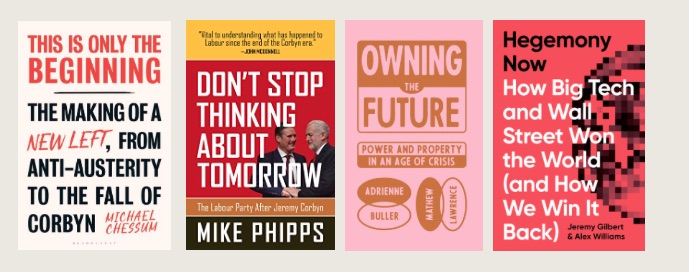
For years, decades, the annual Labour Party Conference hasn't been much more than a glorified rally. It's easy to blame this descent into media spectacle on Peter Mandelson, but then Jeremy Corbyn did little or nothing to change this with conference delegates indulging in endless choruses of Oh Jeremy Corbyn. Not a lot of any particular note takes place but in and around the fringe , particular The World Transformed Festival and this year the launch of the Compass Win as One campaign there are at least some signs that Gramsci's concept of the party as an 'organic intellectual' isn't entirely dead as a proverbial.
To help serve this survival of hope a heap of books are published every September, or thereabouts. of a broadly Labour orientation. This year isn't any different, if anything more than usual and for the most part looking forward to the Labour version of 'what is to be done' (with apologies to VI Lenin) rather than as in previous years 'what did we do wrong'. Agree or disagree with the conclusions, these are books designed to set readers thinking, they succeed or fail to the extent they succeed in this objective.
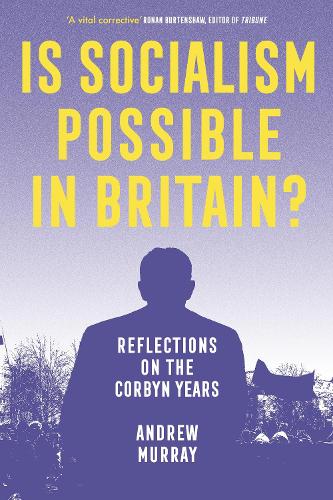
A kind of companion volume to his last book The Fall and Rise of the British Left (published for a previous Labour Conference, 2019 when shortly after 'rise' most definitely changed to 'fall') Andrew Murray's Is Socialism Possible in Britain? Reflections on the Corbyn Years is a, perhaps surprisingly, critical read. Murray loses patience with Corbyn's indecision and caution but most of all on Brexit. The backing of a second referendum he sees as central to the 2019 defeat. Murray was one of a triumvirate of key advisers to Corbyn, Seumas Milne and Steve Howell the other two, with a political background connected to the hardline tradition of the Communist Party, his wide-ranging critique displays a thoughtfulness and openness to alternative views that this tradition, particularly on the USSR, wasn't exactly renowned for. However having little time for the awkward fact the overwhelming majority of Labour members were, and remain (sic) anti-Brexit, and in 2019 backed the second referendum option, suggests a 'politics from below' still has some way to go. As for answering the question ' Is socialism possible in Britain' most readers, me included, will surely answer, for good or ill, that's one -ism unlikely to be promised in the next Labour manifesto, is it?
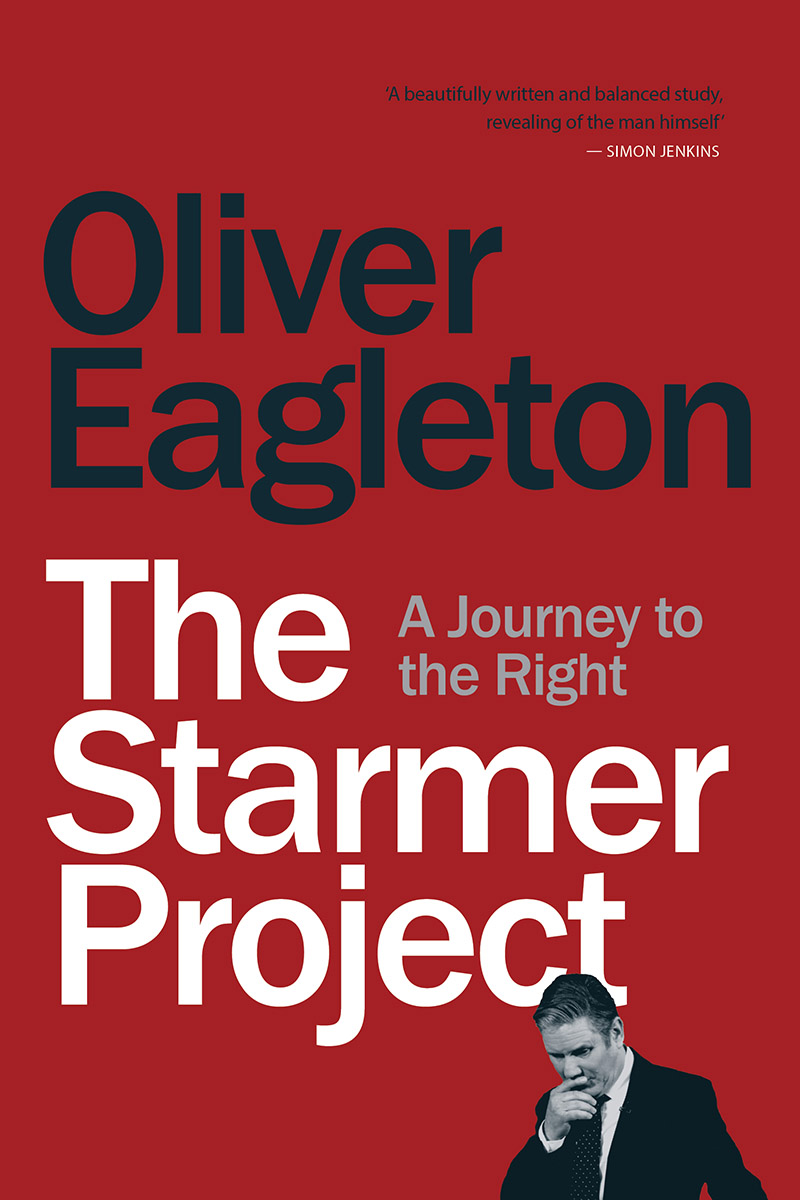
The Starmer Project : A Journey to the Right by Oliver Eagleton attempts to explain the meaning for the shift from Corbynism to Starmerism via a potted political biography of Sir Keir. The book is certainly rich in well-researched detail, much of it previously unpublished and the kind of details that Sir Keir would probably prefer remained unpublished. But the narrative is framed by a politics that borders on the conspiracist. There's this bloke called Starmer, he's not what he seems, he's fooled a lot of people and this needs exposing. What such a narrative amounts to is entirely writing off the reasons he won the leadership election, why so many who'd backed Jeremy, 60% is one reliable estimate, switched to Keir. The relative acquiescence by Labour to the shift he then executed to the right cannot be explained by a conspiracy. And Labour's prospects at the next General Election can't be accounted either simply by a yearning for the return of Corbynism.
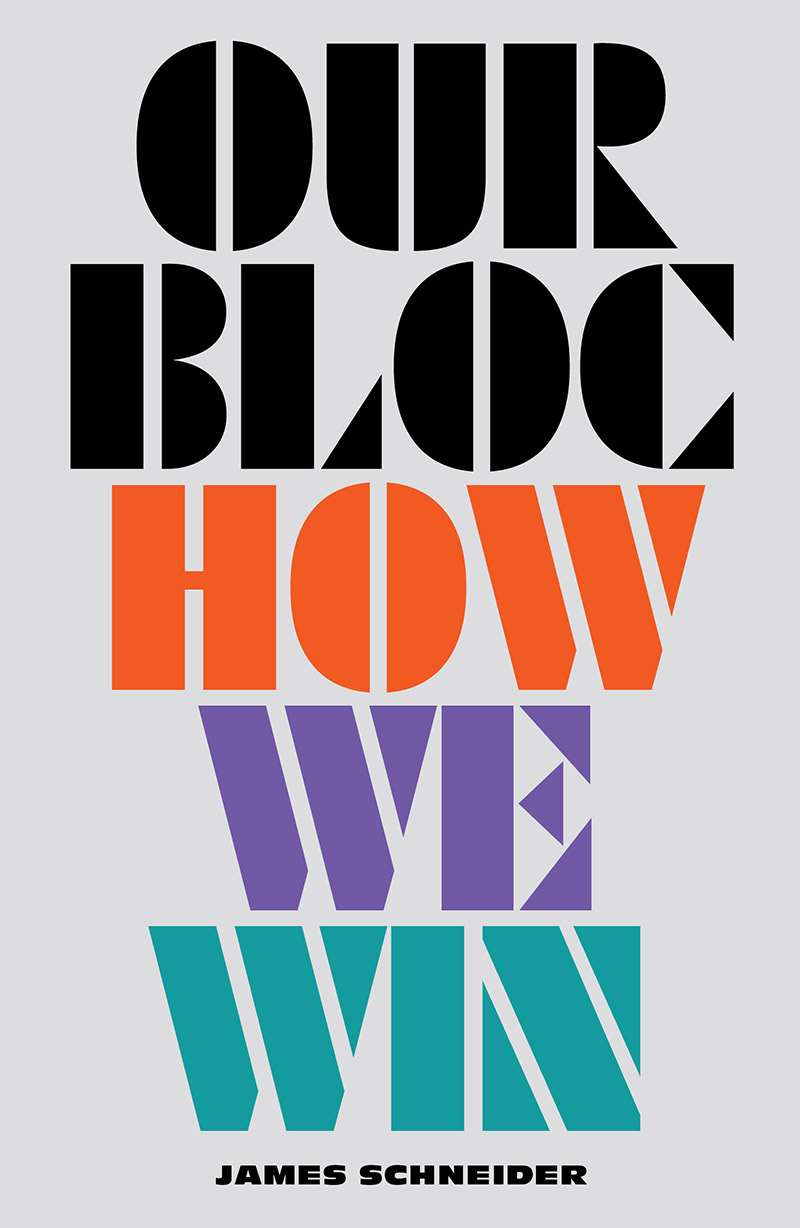
With Our Bloc : How We Win James Schneider attempts, via an extended polemic, something different. Citing Gramsci, Stuart Hall and Chantal Mouffe on hegemony and populism is a good start, however while wide-ranging for such a short book the link between theory and practice tends to get lost in establishing the correctness of James' argument. A 'bloc' that extends beyond, but doesn't reject Parliamentary Socialism, Ralph Miliband and Raymond Williams are both also cited, is absolutely correct. But I lost count the number of times James said X, Y, Z could do this, or that, for such a bloc to materialise but not much about either 'how' or 'why' in the past initiatives such as Enough is Enough haven't become the kind of bloc of James describes. Perhaps this time it will be different?
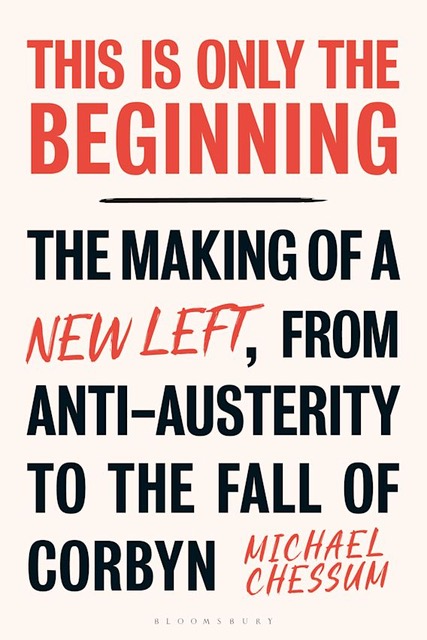
Though the points of disagreement may be marginal to all but those most immersed in the marginalia of the left Michael Chessum comes to the subject of the Labour Party from a different politics to Andrew Murray, Oliver Eagleton and James Schneider who broadly share the same perspective on the Corbyn-Starmer shift. This is Only The Beginning: The Making of a New Left, From Anti-Austerity to The Fall of Corbyn is Michael's hugely impressive testament to the point of this disagreement. His argument has an interesting and quite original format, of the proverbial two halves. First half, he locates the core of Corbynism's support generationally in the anti-tuition fees movement of 2010-11 and afters. The period when Paul Mason famously declared Why its all kicking off everywhere. In the second half Michael connects this ferment to both the rise, and fall, of Corbynism. Shorn of conspiracism, full of depth and an understanding why the fact Labour members, including the 'kicking off' generation, are overwhelmingly anti-Brexit but no remain dupes either, this is a read the left needs right now. What a shame then not a mass market cheap paperback and instead an expensive £20 hardback, sorry, a massive missed opportunity by the publisher.
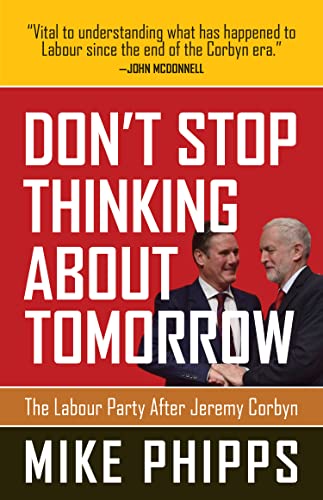
From a different generation to Michael, and wading through the left marginalia, not of quite the same politics either, nevertheless Don't Stop Thinking about Tomorrow: The Labour Party after Jeremy Corbyn by Mike Phipps can almost be read as a companion, 'oldie version' to This is Only the Beginning. Mike's book deals in greater depth with the 'what happens next' which is the shortest section in Michael's, and all the better for it. No wild-eyed party romantic, Mike is in it for the long haul, with a powerful indictment of the flunking out position. This is the politics that Murray, Eagleton and Schneider reject personified, this trio prefer to demonise, by John McDonnell. Whether the space remains for such a left is an open question but Mike Phipps gives us the grounds for, just, maybe. And as an added bonus, the publisher chose a cheap(ish) paperback price £13.
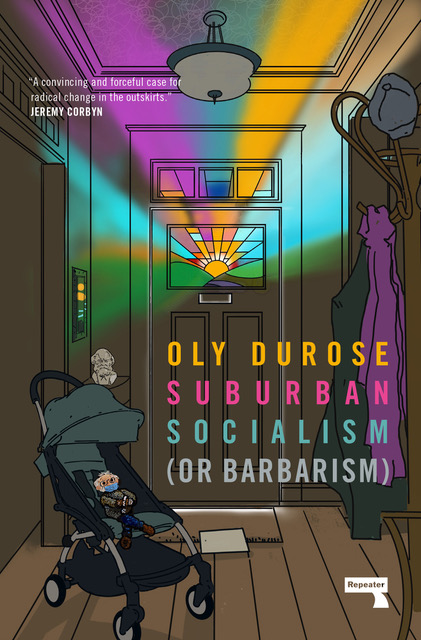
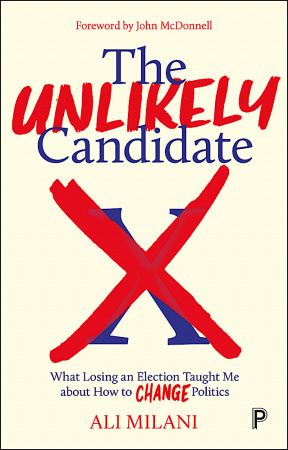
Two books take a very different, and most compelling, approach to exploring the current state of Labour, both written by Labour candidates in the 2019 General Election (spoiler alert: neither won). Ali Milani The Unlikely Candidate : What Losing an Election Taught Me about How to Change Politics is Ali's account of his campaign to unseat Boris Johnson in Johnson's Uxbridge and South Ruislip constituency. Targeted by Momentum as a winnable seat the campaign was both high profile and enjoyed considerable activist support. Winnable? If only! Defeated but unbowed Ali weaves his experience into a portrayal of what the transformation of Labour into a community based, practical activism led Labour Party would look like. Something very different to the more mainstream version currently acing as the very limit of the party's ambition. If Uxbridge might have seemed winnable Brentwood and Ongar was off the scale, a safe and solid Tory seat. Oly Durose came a distant, very distant, second for Labour in 2019 but it spurred him to write a fascinatingly original book Suburban Socialism (or Barbarism) . 'Blue Wall' seats are where Labour and the Liberal Democrats, despite losing, did proportionately better than elsewhere. Oly has unearthed a new battle ground, suburbia. Too late for his own campaign, yet much informed by it, he mixes national identity, economic unrealities, Mark Fisher's 'capitalist realism' and more to summon 'suburban socialism' into existence.
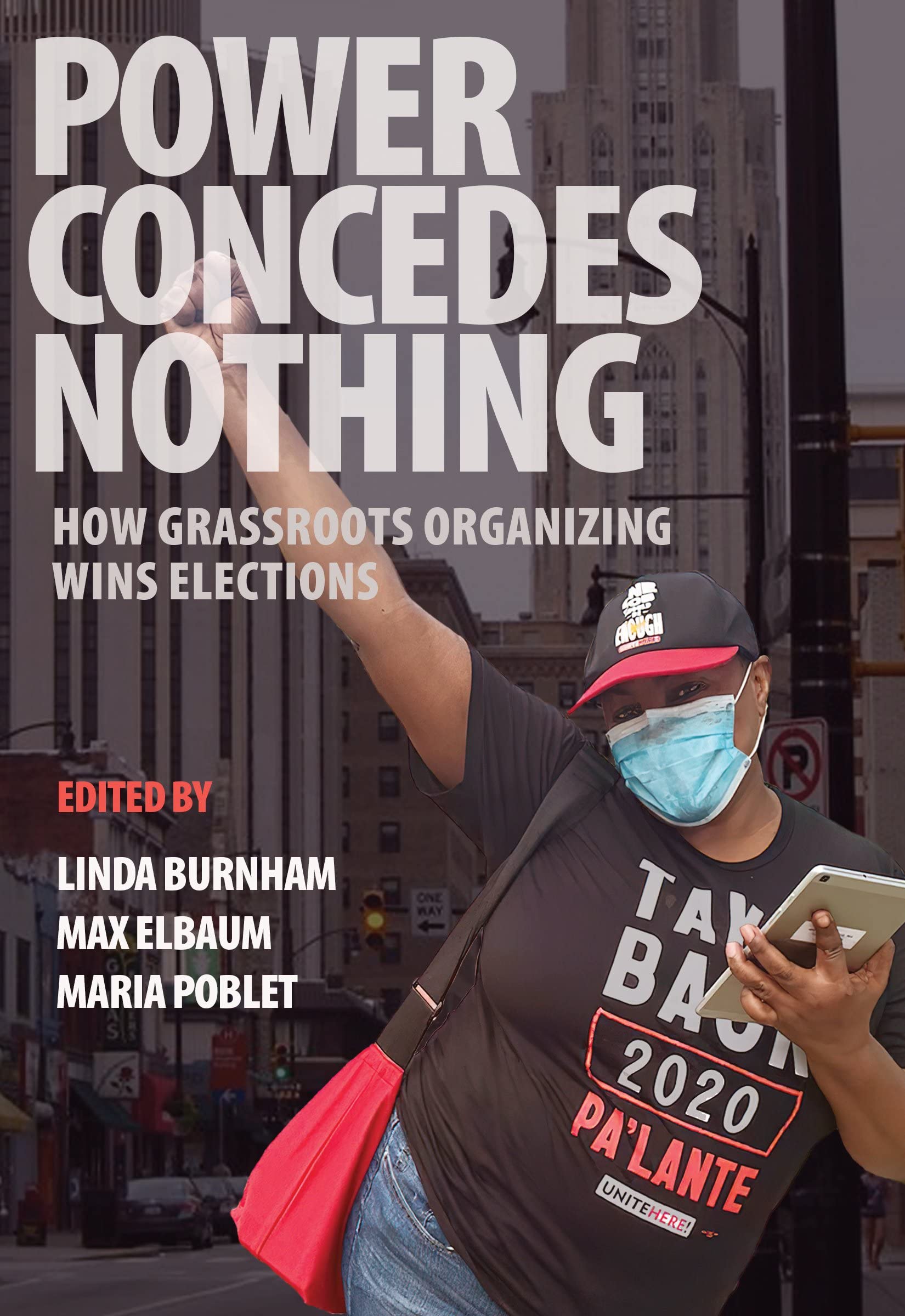
Both books draw on the Bernie Sanders campaign for inspiration. To win Democrat primaries against all odds house by house, street by street, block by block, neighbourhood by neighbourhood all the way up to the Democrat Presidential nomination, almost. Power Concedes Nothing: How Grassroots Organizing Wins Elections edited by Linda Burnham, Max Elbaum and Maria Poblet examines this model of highly localised organising with hugely radical purpose that has a rootedness in the US left mostly absent over here. My advice, read and learn.
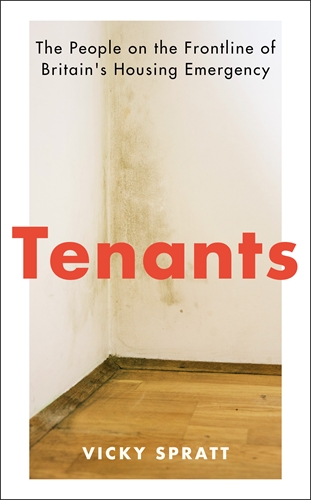
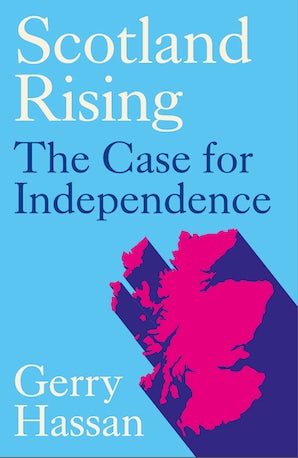
But to effect change, from the local to the global, means Labour needs policies that disrupt and transform the current consensus. A consensus constructed mostly by policing the boundaries of possibility. The growing plight of 'Generation Rent' exists outside of that consensus, both plight and solutions. Vicky Spratt's Tenants puts that right, and then some, a politics centred on the same would both re-order mainstream politics' priorities and connect with those excluded by those self-same priorities as they currently exist. The current basis of the British state, the Union, is an absolute pillar of consensus politics. Yet independence is of course a huge issue in Scotland, and to a lesser extent in Wales too. But in England, by far the most populous of the three nations on this island it scarcely figures except as a 'coalition of chaos' scare story. Labour, outside of parts of the Welsh party, supports the consensus though a big part of this is the politics of wilful omission. Thus, when Labour chooses to 'wrap itself in the flag' it is the Union Jack; England's St George, the Scottish Saltire, the Welsh Dragon remain unwrapped. The party entirely uncaring of any impact this has in Scotland, Wales and indeed England. To help correct Labour Unionism Scotland Rising : The Case for Independence from the Scottish political commentator Gerry Hassan should be required reading for every Labour conference delegate and a major session at The World Transformed but we all know it won't be, as a result Unionist Labour in Scotland trundles on towards self-destruction
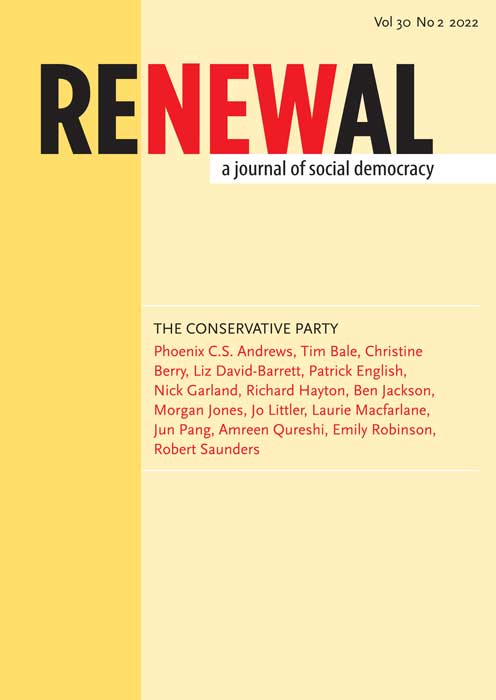
Debate at conference is as carefully staged managed as the leadership can get away with. Meanwhile the fringe strictly divides itself into the right and the left, dialogue in-between next to non-existent, pluralism, for both sides, a dirty word. All together a most unhealthy political culture. Renewal: A Journal of Social Democracy provides a portent of what a Labour Party rooted in dialogue and pluralism might look and feel like. Despite being under resourced and a bog-standard design Renewal is full of heterodox and original writing on Labour's identity, this year alone the politics of coalition, The Conservatives' political economy all treated with a depth and rigour unheard of in the rest of Labour's left media. Published quarterly, much of it free to download too and supplemented by a blog too, my advice? Subscribe, here.
Bit by bit an alternative to Starmerism, ideas-wise is emerging, and any optimism lies with this coming almost entirely from a new generation left. The Labour Right have the numbers, and don't they know it, but for ideas all eyes leftwards. Two, very different books absolutely prove my point.
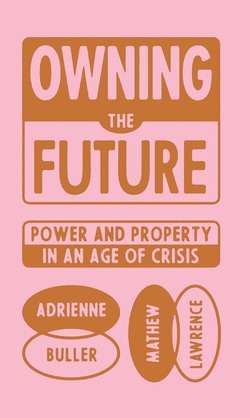
Owning The Future : Power and Property in an Age of Crisis co-authored by Adrienne Buller and Matthew Lawrence (respectively Director of Research and Director at the Common Wealth thinktank) could pretty much be the basis for the next Labour manifesto, of our dreams. Beveridge, Keynes and Cripps rewritten, updated, transformed with a bit of 21st century Bevan thrown in for very good measure. Vital, because without Labour addressing the role of the state and public ownership in reversing four and a half decades worth of neoliberalism triumphant what would a Labour victory amount to in 2024? A very welcome Tory defeat on the basis of the lowest expectations imaginable.
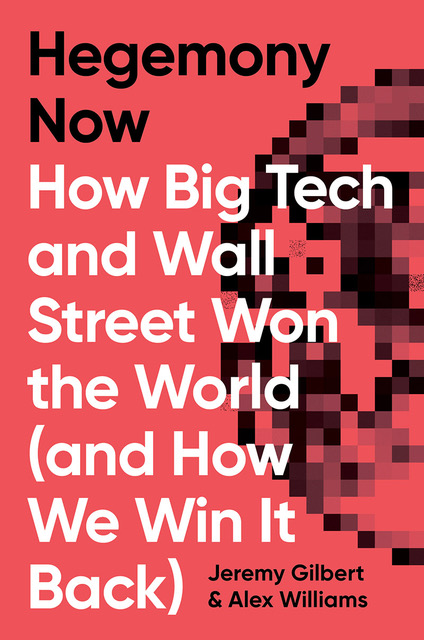
If Adrienne and Matthew raise our expectations to the policies of the possible, Jeremy Gilbert and Alex Williams' Hegemony Now : How Big Tech and Wall Street Won the World (and How We Win It Back) do the same with the politicsof the possible. Power and agency, a strategy towards effecting radical change via the broadest coalition of support imaginable, the breadth of support an organic part of that process, this is what Jeremy and Alex describe. It was in the 1980s via Stuart Hall and the magazine Marxism Today in particular that Gramsci, the war of position, hegemony achieved a purchase on parts of the Left. It is the measure of Jeremy and Alex's achievement that they have managed to reinvent this most creative of left intellectual legacies for an entirely new generation scarred by the consequences of the failure of these ideas to become a majoritarian left tendency the last time. Better luck this time?
Whether in Liverpool for Labour Conference or observing with interest, despair, hope from afar Owning the Future and Hegemony Now more than most provide the signposts for a Left equipped to help shift despair to hope. And in the process prepare ourselves for the two years until the 2024 General Election as active participants in proving that low expectations don't have to be all we can look forward to.
Note No links in this review are to Amazon. If it can be avoided buying from corporate tax dodgers, please do so

Shankly on socialism With Labour Conference taking place in Liverpool,well we couldn't resist, available from here
The day The Clash asked should they stay, or go?
17.09.22
Philosophy Football's Mark Perryman remembers the day Joe, Mick, Paul and Topper broke up

1982, the year of the Falklands War, Gotcha! And when the ships returned to blighty laden with troops greeted with the banner 'Call off the Rail Strike or we'll call in an Airstrike'. A Thatcherite version of patriotism triumphant complete with Michael Foot's Labour Party in tow backing the war.
Grim times, and for those of a certain musical-political disposition, the soundtrack that gave us hope, The Clash, split up. The 17 September '82 release of their single Should I Stay or Should I Go marked the end of the band's classic line up; Joe Strummer, Mick Jones, Paul Simonon and Topper Headon. Various versions struggled on for a while, and both Mick with Big Audio Dynamite and Joe with The Mescaleros went on to produce some great material. But for The Clash as we knew them. The end.
For those of a certain age four decades have passed but nothing will ever replace the sounds and the culture we associate with what seems now that remarkably short time The Clash were together, 1976-82.
In the aftermath of the Falklands War the leading left intellectual of the time, Stuart Hall, described the mood and the political consequences:
" We are up against the wall of a rampant and virulent gut patriotism. Once unleashed, it is an apparently unstoppable, populist mobiliser - in part because it feeds off the disappointed hopes of the present and the deep and unrequited traces of the past, imperial splendour penetrated into the bone and marrow of the national culture. "
But no determinist Stuart also outlined why it didn't have to be this way:
" The traces of ancient, stone-age ideas cannot be expunged. But neither is their influence and infection permanent and immutable. The culture of an old empire is an imperial culture; but that is not all it is, and these are not necessarily the only ideas in which to invent a future for British people. Imperialism lives on - but is not printed in an English gene. In the struggle for ideas, the battle for hearts and minds which the Right has been conducting with such considerable effect, bad ideas can only be displaced by better, more appropriate ones."
The Clash did that 'displacing' in a manner we could sing along with, dance to, wear as a badge with pride. Mixing Notting Hill and Brixton with Rocking against Racism and Working for the Clampdown this was a band that stood defiantly for a very different version of Englishness to Thatcherism. Robin Hood, the Levellers, Cable Street all wrapped up in black leather jackets, bandanas and Doctor Martens. English Civil War The Clash belted out but not for even a fleeting moment petty-minded nationalism, instead theirs' was the popular internationalism of the triple album Sandinista! A rebel music, home and abroad too, quite different to the more than occasionally twee so-called 'World Music' that emerged at the time.
For a generation The Clash were, and will always be the best band of all time, they might not have changed the world but they certainly changed us. They started off as a 'garage band' as proudly proclaimed on their 1977 debut album track Garageland (decades later brilliantly rewritten by punk poet Attila the Stockbroker as Farageland). Attila one of those who keeps the d-i-y rebellion spirt of the Clash alive alongside others includung Joe Solo, Robb Johnson, Jess Silk, Captain Ska, The Commoners Choir, the grassroots and local musical and poetic solidarity of the networks We Shall Overcome and Poetry on the Picketline.Billy Bragg epitomises everything Clash, for the briefest of times The Redskins had the tunes and ideas to be the next Clash but then disappeated, literally. And for a precious moment in 2017 Grime4Corbyn took Clash ideals to a new generation. But none, despite best efforts, have achieved the scale of breakthrough The Clash once managed with a musical-political legacy that four decades hence remains every bit as potent today. Back then in the the space of six years they graduated from the garage to selling out Shea Stadium, with U2 as support. Who knows what if like The Rolling Stones, The Who and U2 decades later The Clash were still with us? We'll never know, but for as long as they were with us, for as long as their legacy remains, one thing is certain, in the words of Joe Strummer ' the future is unwritten'. And for that Joe, Mick, Paul and Topper we'll always be grateful.
Further reading
Colin Coulter (ed) Working for the Clampdown: The Clash, The Dawn of Neoliberalism and the Political Promise of Punk
Gregor Gall The Punk Rock Politics of Joe Strummer

Philosophy Football's The Clash 1976-82 range is available from here
Sun, sea and socialism beach reads 2022
15.08.2022
Mark Perryman of Philosophy Football makes a personal selection of ten books (and a T-shirt) to add bright thinking to any holiday
August, England basking in Euro-winning glory. At Wembley where England last won a tournament, the 1966 World Cup. 56 years of hurt ended by England women, How cool is that?
August, traditionally the height of the British holiday season. And with the climate now in full emergency mode bright sunshine and hot weather pretty much guaranteed. That's how most of the front pages treat his deadly prospect. Rising summer death rates amongst the old and vulnerable, bush fires, drought pretty much a footnote.
Beaches along the Kent and Sussex transformed from holiday favourites to the frontline in arguments and actions over asylum, migration and race.
Staycations increasingly popular, first because of Covid, now because of a mix of the chaos leaving the country and a cost of living crisis. But as Unionist Britain breaks up what kind of England, Scotland and Wales remains?
Holidays, a time of nostalgia, what it was like when we were kids, teenagers, students and twenty somethings. For those now pensionable and of a certain musical, and political disposition the late seventies summers will always be the era of rocking against racism with TRB, X-Ray Spex, Steel, Pulse but most of all The Clash.
1978 was a generational moment of hope. 2022 is currently looking like quite the opposite. If Boris Johnson was bad enough should Liz Truss win the Tory leadership election and implement even half of her leadership election pledges bad could be about to turn into whole lot worse. A summer of discontent threatens to ruin those worst laid plans but decades' worth of experience should have taught us the Tories don't give up that easily, oh no.
Stand and fight, yes, enough to win, no. A new generation of left intellectuals are developing the kind of ideas that serve to highlight the absolute lack of any kind of vision from Keir Starmer's Labour. In the 1980s a similar role was performed by writers in and around the magazine Marxism Today. It isn't simply nostalgia to observe how much this kind of thinking is needed today. Revisit, review, rewrite.
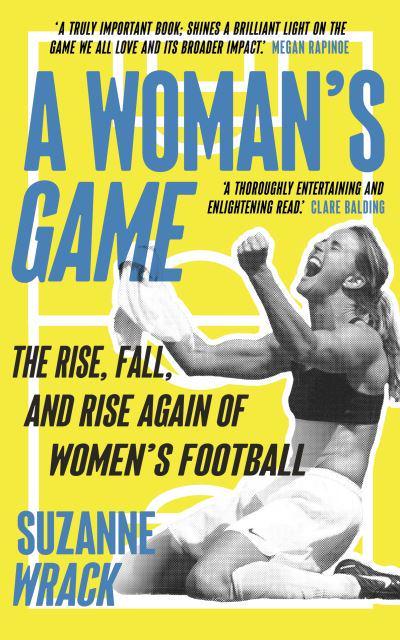
1. Suzy Wrack A Woman's Game: The Rise, Fall and Rise Again of Women's Football
On the beach. England European Champions. A blissful summertime mix. And to add depth, context and brilliant ideas to the feel-good factor there's none better than one of the pioneers of the new (women's) football writing, Suzy Wrack, in her debut and most timely book.
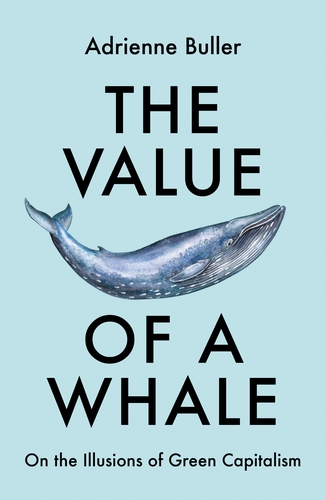
2. Adrienne Buller The Value of a Whale: On The Illusions of Green Capitalism
Adrienne Buller is part of a new wave of economists producing radical ideas in stark contrast to Keir Starmer's mantra ' Labour's mission in government will be economic growth'. With the climate emergency already upon us The Value of a Whale expertly explains why 'growth' isn't enough, not nearly.
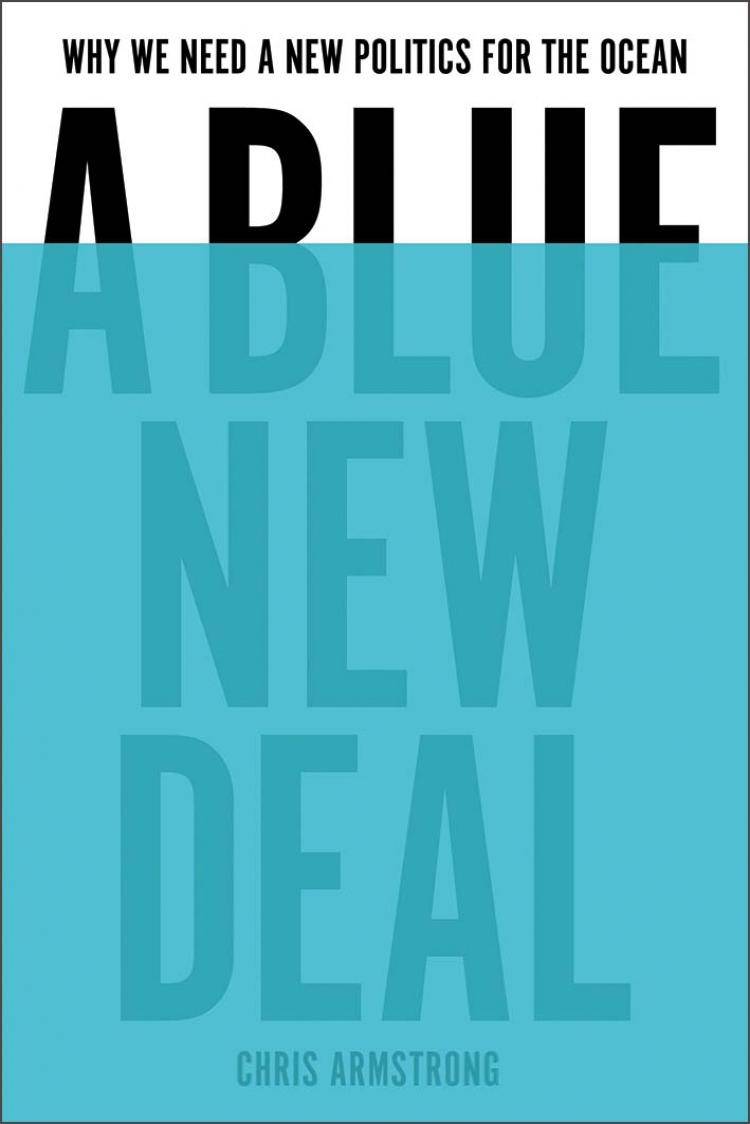
3. Chris Armstrong A Blue New Deal: Why We Need a New Politics for the Ocean
For the lucky ones there's no better place to spend August hols than on a beach in the sunshine. Thoughts of what rising sea levels will do to devastate coastal communities and rising summer heat as a threat to our health and environment not the nicest, if necessary, way to break up the sunbathing and swimming. A Blue Deal is the antidote, an incredible read on how by reversing climate change coastal communities could be regenerated.

4. Tariq Ali Winston Churchill: His Times, His Crimes
'We shall fight on the beaches' was amongst many great Churchill lines a million miles away from the sound bitery of modern politics.But there's Churchillian myth-making too on an industrial scale, Tariq Ali provides a demolition job that some will disagree with but none should entirely ignore.
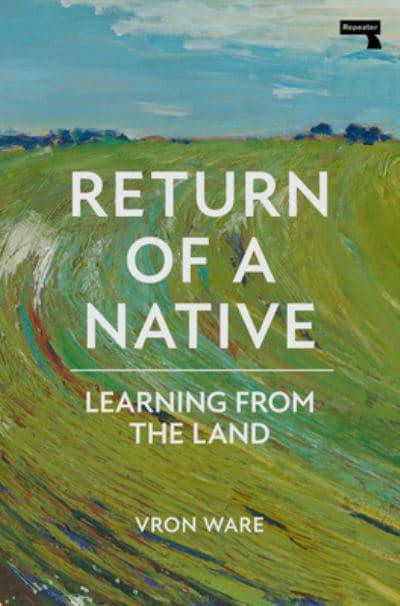
5. Vron Ware Return of a Native: Learning from the Land
For those who prefer a rural spot away from the sand and the sea Return of a Native is an insightful read of how the particularities of the English countryside have become key to constructing Englishness. Combining the ecological and the political this is a book to provoke rethinking well beyond a holiday read.
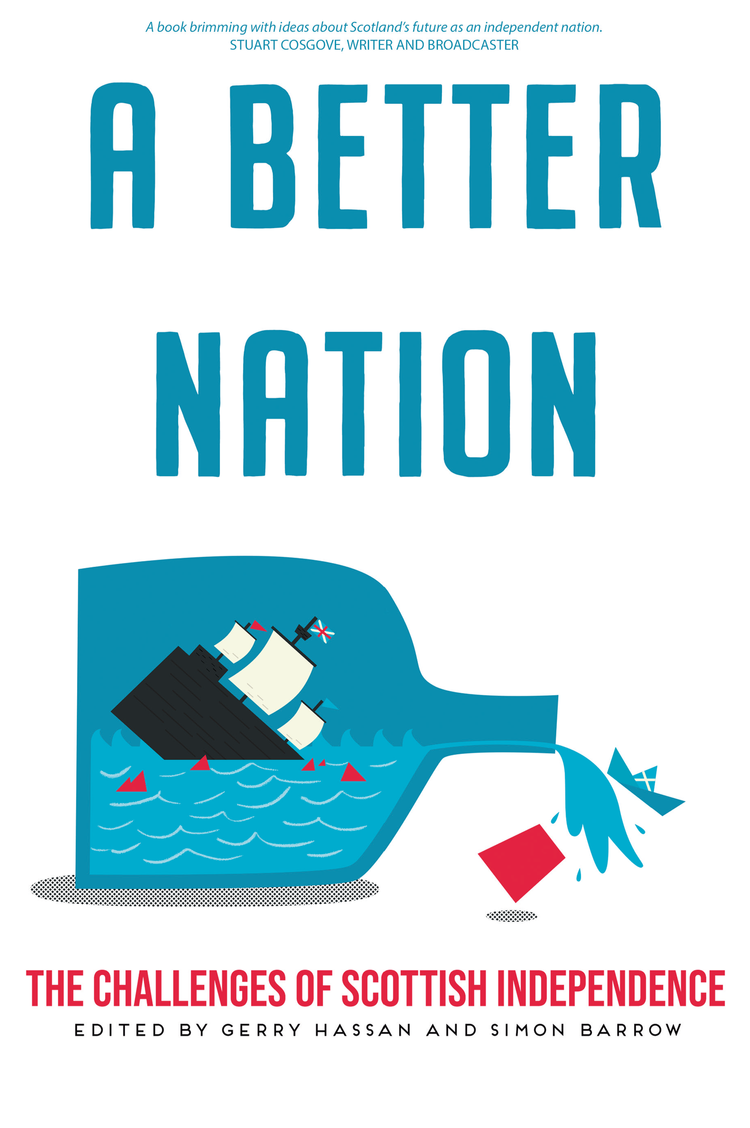
6. Gerry Hassan and Simon Barrow, Eds A Better Nation : The Challenges of Scottish Independence
The near-perfect summertime city break is surely the Edinburgh Festival. Edinburgh is also where the re-established Scottish Parliament is located. Since it was the momentum towards independence has been in fits and starts but it will come. Gerry Hassan and Simon Barrow's edited collection of essays is the best possible survey of a shift a tad more important than fretting over whether future festival visitors from the rest of the UK (sic) will need to pack their passports.
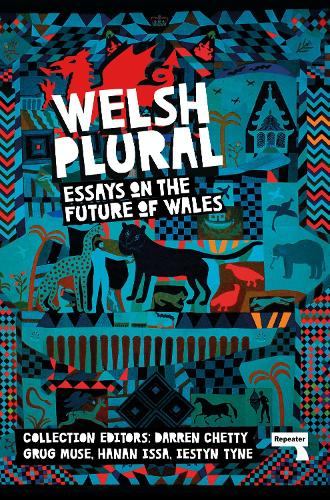
Across coastal Britain's holiday hotspots 'holiday cottages', second homes, serve to exclude local populations from much needed housing. In Wales, uniquely, resistance to this is combined with a nationalist dimension. Hateful ethno-nationalism? Welsh (Plural) helps us to understand why it is anything but, a nation rediscovering and reinventing itself as 'not British'.
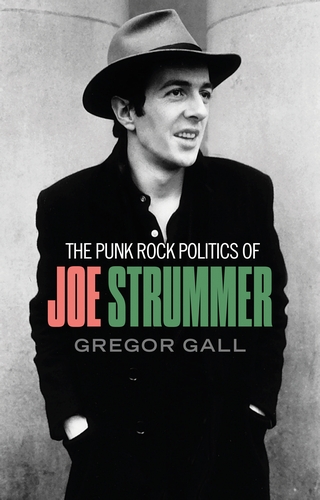
8. Gregor Gall The Punk Rock Politics of Joe Strummer
As summer draws to a close September 2022 will mark the 40th anniversary of the break-up of Joe, Mick, Paul and Topper AKA The Clash. For those of a certain age and inclination it was this foursome who provided, and still do, the soundtrack to our lives. Gregor Gall brilliantly locates the music Joe Strummer provided for the band in what he calls 'punk rock politics' a mix of radicalism, resistance and rebellion, and to dance too.
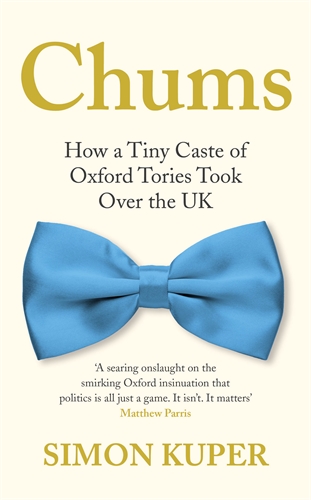
9. Simon Kuper Chums : How a Tiny Caste of Oxford Tories Took Over the UK
Simon Kuper's first book Football Against the Enemy came out in 1994, part of the surge in 'new football writing' it stood apart mixing travel and politics with action on the pitch. A very fine read as has all of Simon's writing been since. Chums is a bit of a departure, no football. Yet it not for one moment disappoints, rather the best ever written dissection of the formation for what passes as the modern Tory Party's leadership.
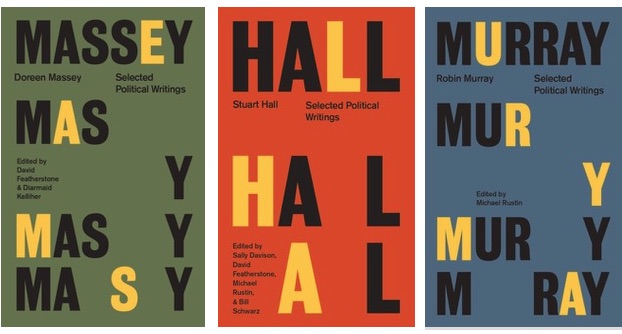
If room in the suitcase or rucksack is at a premium this is the book to pack, or if possible three books. Publishers Lawrence and Wishart have produced the perfect reads to take us away from the next-to-no-ideas Keir Starmer Labour Party to an ideological place where ideas are positively overflowing. Posthumous collections of a triumivrate of key writers from the magazine Marxism Today. Doreen Massey, Stuart Hall and Robin Murray's political writings, no better preparation for after a summer of discontent the change that must follow.

On the beach and ever after wear the incredible memories of an unforgettable July 2022. Philosophy Football's unique T-shirt with match details of England's victories versus Austria, Norwaty, Northern Ireland, Spain and Sweden. Then after 120 minutes England 2 Germany 1, 'Lionesses' swapped for CHAMPIONS. From here
Note No links in this review are to Amazon. If buying books from corporate tax dodgers can be avoided, please do.
Mark Perryman is the co-founder of the sporting outfitters of intellectual distinction aka Philosophy Football
A game of two halves
26.07.22
Mark Perryman of Philosophy Football describes how Euro 2022 is threatening to be a tournament where masculinity is on the losing side.

England? Ingerland! I've written a book (well several actually, articles, interviews, TV and radio broadcasts) on what that one additional syllable symbolises. I thought I knew as much as there was to know, until last Wednesday, England 2 Spain 1, Euro 2022 quarter-final.
My knowledge, such as it is, is partly fandom. From Euro 96 to Euro 2012 I went to just about every England game, home and away, every tournament. That last game, England's exit on penalties to Italy is ten years ago now but the incredible experiences as a travelling England fan have never left me.
Partly activism too. When I first started out England fans' reputation was fearsome. We were the least welcome guests at every Euro or World Cup. Every effort to change this failed, including for Euro 2000 a campaign I helped dream up' Football Yes, Violence No' that failed spectacularly. Why? Because by starting out with a negative aimed at our own fans it threatened to turn into a self-fulfilling negative, and across Holland and Belgium before England went out at the Group Stage, did.
But I learnt a lesson too, to find the elusive positive majority of travelling England fans start with what we all enjoy most, almost as much as the football, the travel. I helped set up LondonEnglandFans travel forums, which grew into a loose network of similar groups across the country. And on trips we'd organise fan-friendly activities, often backed by the British Council, supported by the FA but entirely fan-led. `Do-gooders? Nope. But we weren't sorry to be doing some good. With everything from fans matches against the opposition fans via visits to a local brewery to running a football quiz for schoolkids we reached well beyond England fans' close-to-non-existent constituency of do-gooders to a broad cross selection who just fancied adding an experience bordering on the unique to their trip. And in the process boosting the reputation of an England we were all immensely proud of. A pride that comes with the England fan territory.
And partly intellectual, too. The only books written about England fans were what the late Steve Redhead brilliantly called 'hit 'n tell' including the Brimson brothers string of best sellers and bizarrely written by - tho' a very good book - Granta Editor Bill Buford's Among the Thugs. Meanwhile a growing literature on all things Englishness studiously ignored football. After every tournament from France '98 onwards I'd put together a collection of essays from our fans, opposition fans, our hosts telling an entirely different story to the 'hit 'n tell' brigade or the ghosted players and managers' tournament diaries. And uniquely making the connection between the bi-annual summer of England festooned in St George with the breaking up of Britain.
In 2012 I went to my first women's international. I'd been working on the football tournament at the London Olympics and scored tickets to the women's Wembley Gold Medal match USA vs Japan. It was a kind of football I'd never seen before, fastmoving and skilful yet without much of the brute physicality of the men's game. But most interestingly the crowd which as Mark Steel put it after the women's France v Japan Semi 'the fans were so gleeful they'd be evicted from the ground at an England men's match for being too amicable.' It was the sane at the Final, and then some. Does this mean the first embryonic mass support for international women's football here in England was out for a good time? Well yes, and hurrah to that. But not at the expense of their footballing values. When the loathsome, corrupt, autocratic, and that's putting it nicely, FIFA President Sepp Blatter marched on to the pitch to award USA their Gold Medals he was roundly, universally booed from the stands. Take that for your decades of platitudes about a game of equality Blatter.
Back in Lewes where I live I would occasionally go to watch Lewes Womens FC which under the extraordinary leadership of Karen Dobres has become 'Equality FC'. Much as I valued the iintent I'll admit I didn't entirely get it. Until Lewes, drum roll please, played the newly formed Manchester United Women's team. The crowd was big, full of passion, the result meaning everything but the fact it was Lewes up against United's women rather than their infinitely better known men, frankly irrelevant in the heads of fans of both teams there. Mmm.
Most unlike me I was a tad disorganised getting tickets to the Women's Euros. Since stopping travelling summer tournaments just haven't had the same thrill, being there, over there, nothing else comes close. But when early Saturday morning an email from UEFA, I must have registered for Euro 2022 tickets years ago, offering late availability for England's Quarter-Final vs Spain ust down the road at Brighton's ground, well I couldn't resist.
The week previous, England's game against Norway I'd noticed something interesting of those gathering to head out of Lewes on the ten minute train journey to the game. Unsurprisingly lots of family groups, mums and dads, with their daughters and a fair few sons too. But also young lads, not of the overly laddish variety, but in their England shirts, an England tournament game too good to miss. It's women's football? What the hell. OK ten minutes on the train, cheap tickets, £20, decent seats too, and not, as I was to discover, so difficult to get hold of either. But despite all this it's not that long ago, the Women's Euro 2005 in England to be precise, this would have been unimaginable.
And more changes dawned on me at the Quarter Final too. The air of menace around England home and away can be exaggerated. But here as we crowded into the train and disembarked on to the platform at Falmer it was entirely absent. A football crowd with if anything women and girls in the slight, though not overwhelming, majority quite unlike any other football experience,. Not just at the ground, but in the pubs, workplace and other conversations, lets be honest everything about football as we know it is decidedly masculine. From boomers to zoomers, Generation X to Generation Z this has hardly changed, not one bit.
In so many ways at England v Spain it had. This isn't just about demographics, the politics of representation, this is about cultural change. Big brawny blokes wearing England's training strip combo of pink and bright pastels. The black female house DJ playing dance numbers and women fans all over the stands getting up and dancing. The feminised singalong to Oasis classic Wonderwall, turning a lads anthem back into what it was written as, a love song. The England men's band tub-thumping doing their best to rouse the crowds but a fairly obvious sigh of collective relief when they shut up and there was something else to sing, and dance, along too. This was a crowd here for an England win and enjoy themselves in the process. The so-called 'National Anthem', it isn't, observed but hardly sung with the usual martial gusto. No chants about World War Two, the IRA, the Falklands or Al Qaeda. The last time England met Spain in a Euro Quarter Final, 1996, the Piers Morgan edited Daily Mirror dragged up Francis Drake's sinking of the Spanish Armada to beat up the opposition. And best of all no endless singing of It's Coming Home once England went 2-1 up.
But no Mexican Waves, all too common at Wembley for England men's games. either. This was a crowd who knew how to party, but knew this meant inventing our own traditions, not importing, or having imposed upon us, other's. Sometimes the commodification of fandom did grate. Cards saying 'GOAL" to hold up when England score, where did those come from? Is it really necessary to spell it out E-N-G-L-A-N-D H-A-V-E S-C-O-R-E-D. And the corporate equality-washing smells of a desperation to cover their selling message. From Volkswagen, 'Not Women's Football - Women Play Football'. Really?
Football for all, getting there but not, as it's been observed during the tournament, not yet. English women's football is overwhelmingly white. But this is less about a numbers game than the social construction of sport, any sport. Women's football in England is nowhere near as diverse as the men's game - tho' this is distinctly partial too, how many black and minority ethnic managers in the Premiership and Football League anyone? The women' s game has only recently become professionalised, even more recently paying the kind of wages and providing the kind of platform to become aspirational. The playing side of men's football has never been gentrified unlike every other part of the game, with few exceptions it remains resolutely working class, including the Black and mixed race working class, but not other ethnic minorities. Interestingly a different process of scholarships, and since 1995, professionalism has created a much more multicultural England rugby team than hitherto. Diversity is a product of such structural changes not, even if England win the Euros, the myth of so-called 'role models.'
But on Wednesday night such thoughts s could be put on one side, for now. A change was underway, shaped most importantly of all by the performance on the pitch, both teams. This was as thrilling and nerve-wracking as the knockout stages in a Euro or World Cup gets. Out of this world fitness, astronomical levels of commitment, sky-high skill on the ball. Hard fought, that was obvious even from my position in the stands, but not dirty, likely to cause injury. Yellow cards not quite non-existent but certainly less frequent, and little dissent when issued, compared to the men's game. No medical aid required on the pitch until the 80th minute or so testament to a different kind of physical contest, more about being fitter, faster, more concerned with what can be done with the ball than simply stopping the other lot, dead.
Anyone watching the game via a squint and perhaps oblivious to the England team's preponderance of blonde pony tails would have had no idea this was England women rather than men down on the pitch providing the most exciting 120 minutes of football imaginable. Seated in the stands surrounded by a passion that was both highly visible and loudly audible yet free of any boorishness, triumphalism and hatred of the other lot we might think this is an England we want to be part of, I certainly did, The crowd less toxic? Yes. Down to masculinity? Almost certainly. The kind of male anti-social behaviour that has to be endured every Saturday night city and town centres come closing time yet never makes the news given a platform when occurs at football. The vocabulary of 'hooliganism' serves to obscure this salient, and ugly. fact. Has the support for England women this summer meant all these aspects of masculinity have not been as central to the game as it usually is? Yes. Perhaps rather than rearranging pronouns there's something more profound at work here. Wednesday night was a remarkable achievement in so many ways. Just imagine if they now go on and win it. But win or lose to effect change the processes underway have to be recognised and understood. England vs Sweden, tonight 8pm C'mon Ingerland .
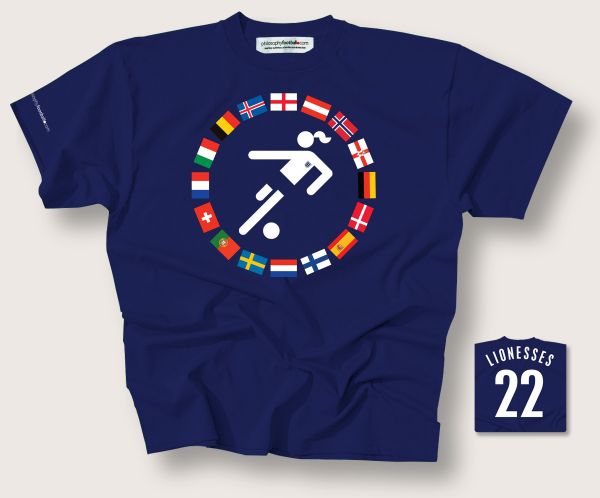 Mark Perryman is the co-founder of the self-styled 'sporting outfitters of intellectual distinction' aka Philosophy Football. Our Euro 2022 Lionesses T-shirt is available from here
Mark Perryman is the co-founder of the self-styled 'sporting outfitters of intellectual distinction' aka Philosophy Football. Our Euro 2022 Lionesses T-shirt is available from here
- And then there were two
01.03.25 - This Land is (still) Your Land
22.02.25 - Happy 80th Birthday Bob Marley
01.02.25


